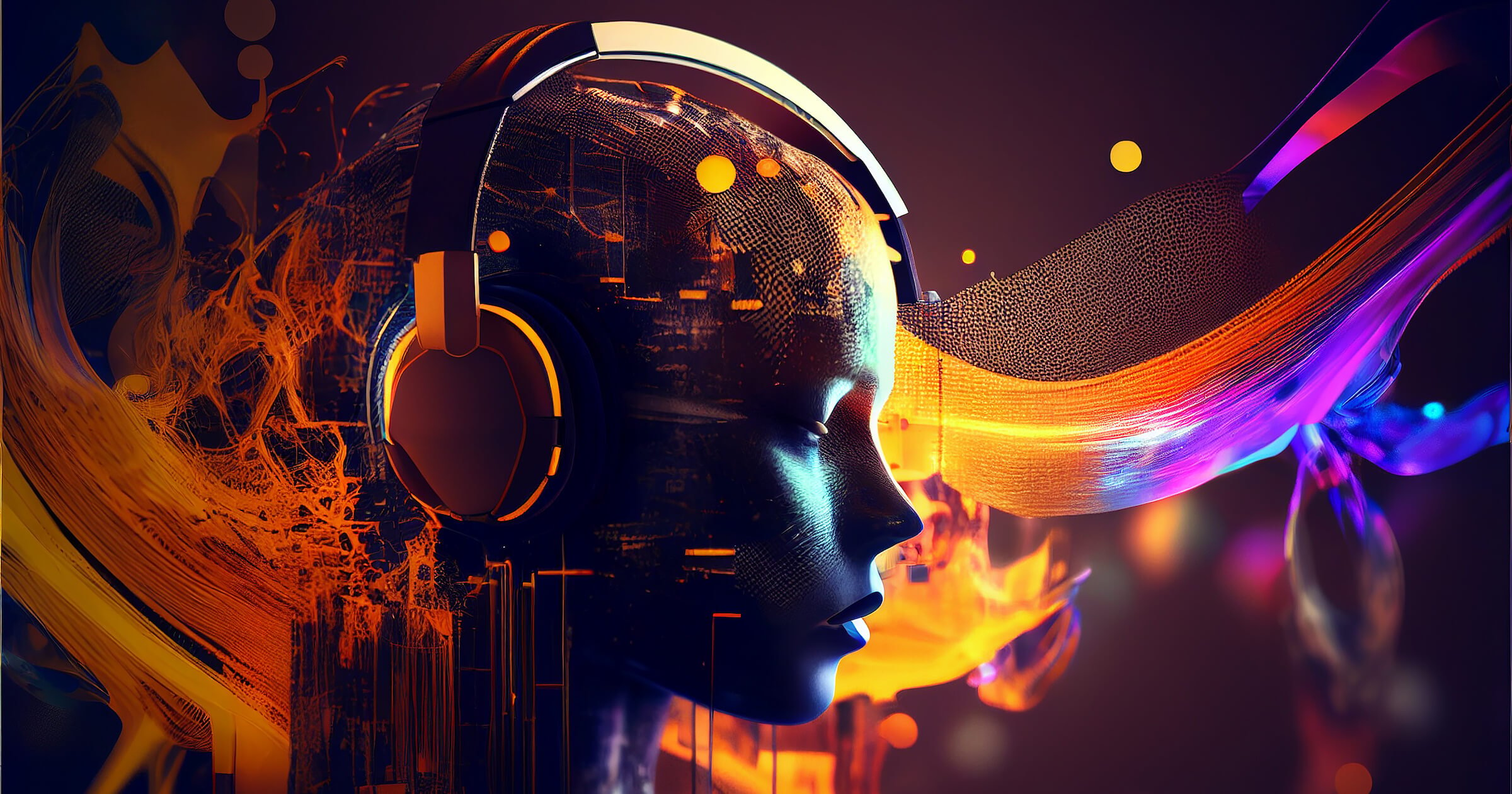AI Music and Brand Storytelling: How Technology Shapes Emotional Connection
At the heart of every successful brand is a story. Visuals, words, and experiences all work together to tell that story, but sound adds a layer of connection that nothing else can replicate.

Why Storytelling Matters in Branding
A single melody, a subtle soundscape, or even a short chime can evoke emotion, spark memory, and create a sense of belonging.
With the rise of artificial intelligence, the way brands use sound to tell their stories is changing. AI music is no longer just an experiment. It is being applied in advertising, retail, wellness, and entertainment to help brands shape experiences at scale. But how exactly does AI fit into brand storytelling, and what does it mean for building emotional connections with audiences?
What Is AI Music in the Context of Branding
AI music refers to compositions or soundscapes generated or enhanced by artificial intelligence. Instead of relying solely on human composers, brands can now use algorithms trained on thousands of musical styles to generate tailored sound that fits a campaign or experience.
In branding, AI music can support storytelling by:
- Producing custom soundtracks that align with campaign narratives.
- Creating adaptive music that changes with user behavior.
- Generating branded soundscapes for digital and physical environments.
- Enhancing interactive experiences, from apps to events.
Unlike generic stock music, AI-generated compositions can be customized quickly and at scale, giving brands new ways to align sound with their stories.
The Power of Sound in Emotional Branding
Sound has always been a shortcut to emotion. Neuroscience research shows that music activates the brain’s reward centers, triggering memory, nostalgia, and even physiological responses. This is why certain jingles stay stuck in our heads and why specific melodies can bring back vivid memories.

When integrated into storytelling, music does more than decorate a campaign. It becomes part of the narrative itself. Think of how film scores heighten drama or how brand jingles convey identity in seconds. AI adds a new dimension by making it possible to generate story-driven sound faster and with more flexibility than ever before.
How AI Shapes Brand Storytelling Personalization at Scale
One of the most powerful applications of AI music is personalization. Traditional brand soundtracks are one-size-fits-all. AI, however, can adjust compositions to reflect different audiences, demographics, or even individual preferences.
Imagine a fitness brand whose app generates motivational playlists based not only on workout type but also on user mood. Or a retail brand using adaptive soundscapes that shift based on foot traffic or time of day. These experiences turn storytelling into something dynamic and immersive.
Consistency Across Channels
Brand storytelling depends on consistency, but producing unique audio for multiple platforms can be costly and time-consuming. AI allows brands to create variations of a sonic identity that feel consistent without being repetitive. The core melody or theme remains, but the expression adapts to context — from TikTok ads to in-store activations.
Real-Time Storytelling
In interactive spaces like gaming, VR, or experiential events, AI music can respond to user actions in real time. This turns audiences from passive listeners into participants in the brand story. For example, a car brand could use AI sound design in a VR test drive that changes based on how the user navigates the environment.
Experimentation and Innovation
AI makes it possible to test multiple sound directions quickly. Brands can experiment with different moods, tempos, and instrumentations to see what resonates before finalizing a soundtrack. This accelerates creative exploration and allows for bolder storytelling.
Benefits and Opportunities for Brands
AI enables faster turnaround times for campaigns, allowing brands to keep up with real-time cultural moments while still telling coherent stories through sound. AI also provides tools for exploring genres and moods that might otherwise be inaccessible or too costly. This expands a brand’s ability to tell stories across different markets and audiences.
AI Generated Storytelling – Risks and Considerations
While AI can generate compelling music, relying solely on algorithms risks diluting authenticity. Storytelling is most effective when audiences sense human intention and creativity behind the work. If many brands use similar AI platforms, outputs may start to feel generic. Brands must ensure their sonic storytelling remains distinctive.

The biggest challenge is finding the balance between AI efficiency and human artistry. AI can generate options, but human oversight is essential to ensure music reflects the deeper values and emotions of the brand.
The Future of AI in Brand Storytelling
AI is not replacing the role of sound in storytelling. It is expanding it. As technology advances, we can expect to see more immersive, adaptive, and personalized audio experiences across industries. For brands, this means sound will play an even larger role in shaping recognition, loyalty, and emotional connection.
Those who approach AI music as a tool for enhancing rather than replacing creativity will unlock the greatest potential. Storytelling will remain a human endeavor, but AI will give brands new ways to make stories heard, felt, and remembered.
Make Brand Your Story Heard
Brand storytelling has always relied on sound to connect with audiences on an emotional level. AI powered music does not erase that truth, it amplifies it. By using AI thoughtfully, brands can tell richer stories, create more personalized experiences, and strengthen recognition in a crowded marketplace.
CMoore Sound helps brands navigate this new frontier by combining creative expertise with technological insight. If you are ready to explore how AI music can enhance your brand storytelling, our team is here to guide you.